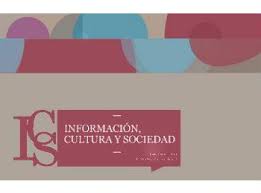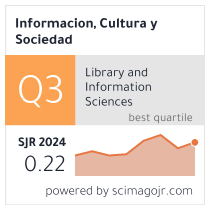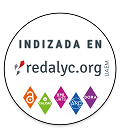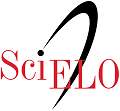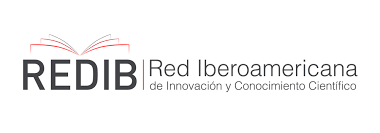Dilemmas of Argentine university libraries regarding the access and dissemination of scientific literature
Abstract
In this essay we reflect on the role of the university librarian as a disseminating agent and provider of access to scientific information in Argentina. First, we present the problems that arise in the professional practice and generate us dilemmas: The tension between the right of access to information and intellectual property; our imaginary on open access and the way in which we disseminate it into the academic community, facing the rules of the scientific field that researchers must follow to progress in their careers; and the relationship with commercial providers in front of our convictions about the way forward to achieve the democratization of access to scientific knowledge. After the debate on these dilemmas, where we brought to the dialogue our own experiences and those of colleagues, as well as those found in the consulted literature, we discuss some aspects to rethink our role in the academy, putting the focus of attention on our social function.Downloads
References
Argentina. Ley N° 26.899. 2013. Repositorios digitales institucionales de acceso abierto. En Boletín Oficial de la República Argentina, 32.781, Primera Sección, 3-4. <http://servicios.infoleg.gob.ar/infolegInternet/anexos/220000-224999/223459/norma.htm> [Consulta: 15 mayo 2020].
Babini, Dominique. 2019. La comunicación científica en América Latina es abierta, colaborativa y no comercial. Desafíos para las revistas. En Palabra Clave. Vol. 8, no. 2, e065. <https://doi.org/10.24215/18539912e065>
Banzato, Guillermo. 2019. Soberanía del conocimiento para superar inequidades: políticas de Acceso Abierto para revistas científicas en América Latina. Mecila Working Paper Series, No. 18. <http://mecila.net/wp-content/uploads/2019/08/WP-18-Banzato-Online-Final.pdf> [Consulta: 15 mayo 2020].
Beigel, Fernanda. 2018. Las relaciones de poder en la ciencia mundial. Un anti-ranking para conocer la ciencia producida en la periferia. En Nueva Sociedad. No. 274, 13-28. <https://nuso.org/media/articles/downloads/TG.Beigel_274.pdf> [Consulta: 15 mayo 2020].
Bohannon, John. 2016. Who’s downloading pirated papers? Everyone. En Science. Vol. 352, no. 6285, 508-512.<https://doi.org/10.1126/science.352.6285.508>
Borrego, Ángel. 2017. Institutional repositories versus ResearchGate: The depositing habits of Spanish researchers. En Learned Publishing. Vol. 30, no. 3, 185-192. <http://dx.doi.org/10.1002/leap.1099>
Bradford, Samuel C. 1934. Sources of information on specific subjects. En Engineering. A Illustrated Weekly Journal. Vol. 137, no. 3550, 85-86. Reprinted in 1985. Journal of Information Science. Vol. 10, no. 4, 176–180.
Correa, Carlos M. 2009. Acceso a la cultura y derecho de propiedad intelectual: la búsqueda de un nuevo equilibrio. En ¿Desea guardar los cambios? Propiedad intelectual y tecnologías digitales: hacia un nuevo pacto social. Córdoba: Centro Cultural España. p. 130-152. <http://hipermedula.org/wp-content/uploads/2010/10/desea_guardar_los_cambios.pdf> [Consulta: 15 mayo 2020].
Declaración de México a favor del Ecosistema latinoamericano de Acceso Abierto No Comercial. 2017. <http://www.accesoabiertoalyc.org/declaracion-mexico/> [Consulta: 18 mayo 2020].
Fushimi, Marcela. 2018a. Bloqueo y lobby en contra de las editoriales monopólicas. En Blog Acceso Abierto en movimiento. <http://accesoabierto.fahce.unlp.edu.ar/entradas/bloqueo-y-lobby-en-contra-de-las-editoriales-monopolicas> [Consulta: 15 mayo 2020].
Fushimi, Marcela. 2018b. Desarrollo de repositorios digitales institucionales en las universidades nacionales en Argentina, período 2004-2015. Bernal: Universidad Nacional de Quilmes. 181 p. Tesis de maestría. <http://www.memoria.fahce.unlp.edu.ar/tesis/te.1629/te.1629.pdf> [Consulta: 15 mayo 2020].
Guédon, Jean-Claude. 2009. It´s a repository, it´s a depository, it´s an archive...: open access, digital collections and value. En ARBOR Ciencia, Pensamiento y Cultura. Vol. 185, no. 737, 581-595. <http://dx.doi.org/10.3989/arbor.2009.i737.315>.
IFLA. 2012. Código de Ética de IFLA para los bibliotecarios y trabajadores de la información. <https://www.ifla.org/files/assets/faife/codesofethics/spanishcodeofethicsfull.pdf> [Consulta: 15 mayo 2020].
Laakso, Mikael y Juho Lindman. 2016. Journal copyright restrictions and actual open access availability – a study of articles published in eight top information systems journals (2010-2014). En Scientometrics. Vol. 109, no. 2, 1167-1189. <https://doi.org/10.1007/s11192-016-2078-z>
Larivière, Vincent; Stefanie Haustein y Philippe Mongeon. 2015. The Oligopoly of Academic Publisher in the Digital Era. En PLOS One. Vol. 10, no. 6, e0127502. <https://doi.org/10.1371/journal.pone.0127502>
Liberatore, Gustavo. 2018. Visión actual del profesional de la Bibliotecología y Ciencia de la Información en la docencia y la investigación. En Jornadas de Docentes Investigadores Universitarios en Ciencia de la Información (2a: 2018: Mar del Plata). p. 7-17.
Machin-Mastromatteo, Juan de.; Alejandro Uribe-Tirado y María E. Romero-Ortiz. 2016. Piracy of scientific papers in Latin America. An analysis of Sci-Hub usage data. En Information development. Vol. 32, no. 5, 1806-1814. <https://doi.org/10.1177/0266666916671080>
Miguel, Sandra; Claudia M. González y Edgardo Ortiz-Jaureguizar. 2018. Preferencias de investigadores y prácticas institucionales/disciplinares en la difusión y socialización de los resultados de investigación. En Información, cultura y sociedad. No. 38, 53-76. <https://doi.org/10.34096/ics.i38.3989>
Open Letter on Intellectual Property and COVID-19 to the Director General of WIPO. 2020. <https://www.ifla.org/ES/node/92993>. [Consulta: 15 mayo 2020].
Parada, Alejandro. 2017. Endogamia y Bibliotecología/Ciencia de la Información. En Información, Cultura y Sociedad. No. 36, 5-10. <http://revistascientificas.filo.uba.ar/index.php/ICS/article/view/3551> [Consulta: 15 mayo 2020].
Pinch, Trevor J. y Wiebe. E. Bijker. 2008 [1987]. La construcción social de hechos y artefactos: o acerca de cómo la sociología de la ciencia y la sociología de la tecnología pueden beneficiarse mutuamente. En Thomas, Hernán y Alfonso Buch, coords. Actos, actores y artefactos: Sociología de la tecnología. Bernal: Universidad Nacional de Quilmes. p. 19-62.
Piwowar, Heather; Jason Priem; Vincent Larivière; Juan Pablo Alperin; Lisa Matthias; Bree Norlander; Ashley Farley; Jevin West y Stefanie Haustein. 2018. The state of OA: a large-scale analysis of the prevalence and impact of Open Access articles. En PeerJ, 6, e4375. <https://doi.org/10.7717/peerj.4375>
Sanllorenti, Ana María; Lucía Pelaya y Martín Williman. 2012. Instrumentos para la gestión del derecho de autor en repositorios de Acceso Abierto. En Revista Interamericana de Bibliotecología. Vol. 34, no. 3, 313-328. < https://revistas.udea.edu.co/index.php/RIB/article/view/11969 > [Consulta: 15 mayo 2020].
Swartz, Aaron. 2012 [2008]. Manifiesto por la Guerrilla del Acceso Abierto. <https://endefensadelsl.org/guerrilla_del_acceso_abierto.html> [Consulta: 15 mayo 2020].
Unzurrunzaga, Carolina. 2017. Hábitos de los investigadores de Humanidades y Ciencias Sociales para visibilizar sus publicaciones en el entorno digital. Un estudio de caso argentino. Salamanca. Universidad de Salamanca. 100 p. Trabajo de Fin de Máster en Sistemas de Información Digital, curso 2016-2017. <http://hdl.handle.net/10366/138126> [Consulta: 15 mayo 2020].
Zukerfeld, Mariano y Pablo Kreimer. 2014. La explotación cognitiva: tensiones emergentes en la producción y uso social de conocimientos científicos tradicionales, informacionales y laborales. En Kreimer, Pablo; Hebe Vessuri; Léa Velho y Antonio Arellano, coords. Perspectivas latinoamericanas en el estudio social de la ciencia, la tecnología y el conocimiento. Buenos Aires: Siglo XXI. p. 178-193.
Authors publishing in this journal acknowledge the conditions below:
- Authors retain the copyright of their work while they transfer the right of the first publishing to the journal, under the Creative Commons Attribution-ShareAlike 4.0 International (CC BY-SA 4.0) Licence, which allows third parties to reproduce them under the condition that express mention is given to the author and to its original publication in the journal.
- Authors may enter into other contractual and independent arrangements for the non-exclusive distribution of the version of the article published in this journal (for instance, it can be published in an institutional repository or in a book). In any case, an express mention should be given to its first publication in the journal.
- It is permitted and encouraged to publish online the articles (for example, on institutional or personal pages).
